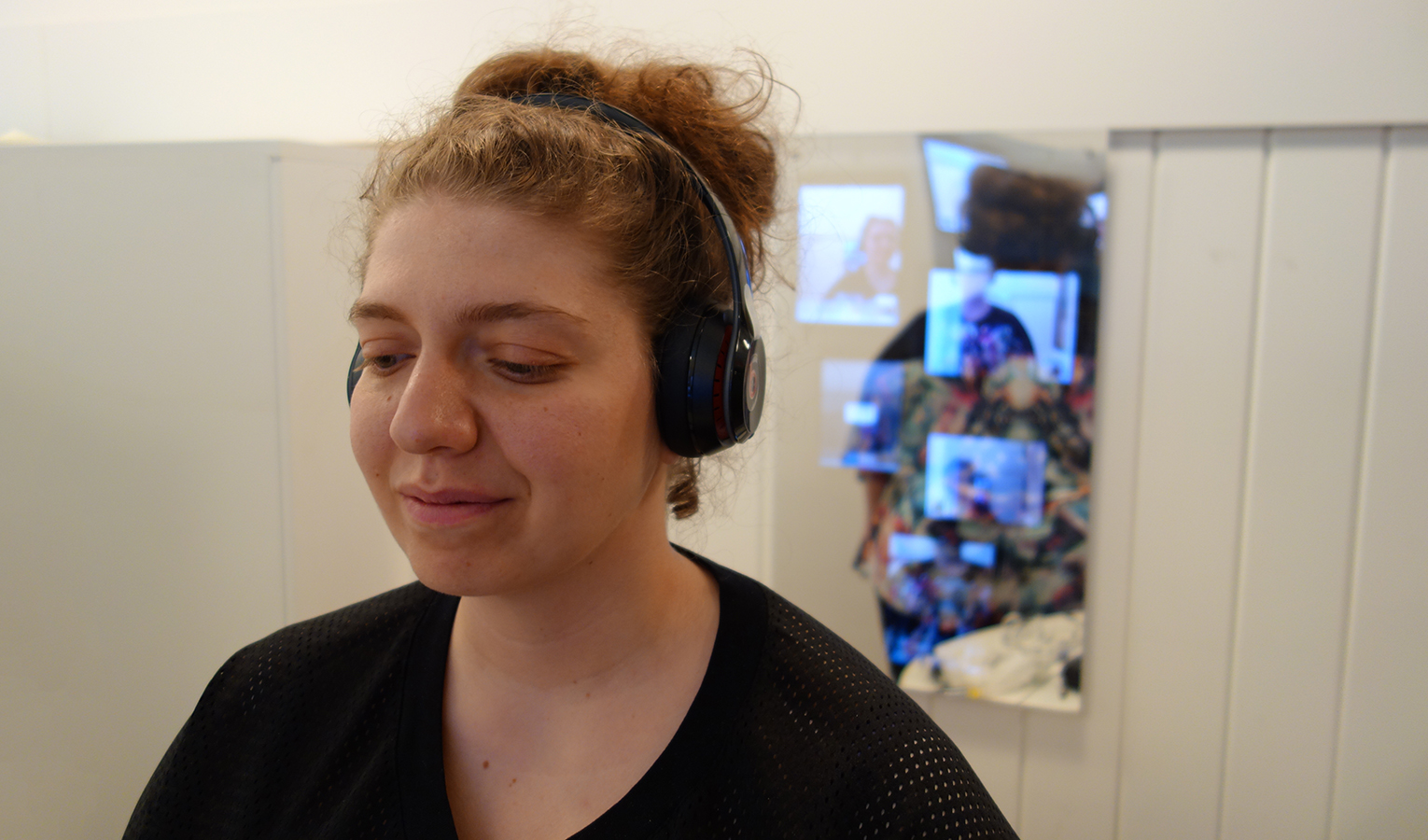As precedents, I referenced the following six thesis projects from past MFADT students:
Melaine Bossert
Shuangshuang Huo
Eric Jiang
Christina Lafontaine
Zeqing Hong
Heloise Sampaio
I'm paying a closer look to the three following projects:
Path
In this project, Eric Jiang explores the concept of an "auralized landscape". It discusses the relationship between our environment and our senses and how technology facilitates our perception. The audience's raking motion would trigger audio of the chanting of monks. It's also interesting that the technological interaction is embedded into a ritual that is commonly perceived as purely analog. Through interacting with a virtual sand garden, the audience can curate and use sound to visualize their own version of a zen garden - their own reality.
Ethereal Ecologies
Christina Lafontaine's project explores the concept of parallel worlds and the illusory liminal spaces that bridge the boundary between our accepted reality and the unknown. She states that "my goal is to inspire curiosity and discovery about what exists beyond our human range of senses", and I consider that to be successfully achieved. I --and I imagine many else-- have always been intrigued by the concept of parallel universes and hidden portals which take us to another world. Her multi-media installations, although tiny in scale, illustrates a landscape that could expand into an entire world. I enjoy her photography skills and her documentation gives a clear explanation that these landscapes are to be stumbled upon and discovered within a seemingly ordinary urban landscape.
Blind Spot
How do we perceive the reality? Zeqing Hong's project builds on the common assumption that our eyes are the cameras that constantly monitor reality, and begins to ask what are the limitations to our eyes and thus our perception. In this interactive installation, the audience encounters the self from an outside perspective through seeing footages of themselves. This project asks existential questions and points the focus of our perception back to ourselves.
Concept Statement
Context: what are you researching, experimenting with or studying; and why?
Intention: what do you plan to make, and why? How is this making a response to your inquiry?
Impact: what is the goal of your project, why is it important?
I plan to create an environment that challenges the constituents of our perceived reality. I hope to provide an opportunity for the audiences to become aware of the possible disconnect between their sensory inputs and the physical reality. Facilitated by space design, kinetic sculptures and AR technology, the project space will bring surprises, confusion and excitement of revelation. I would like my audience to walk away noticing things they've taken for granted and overlooked; with a mindset of skepticism for their old practice of perception.






